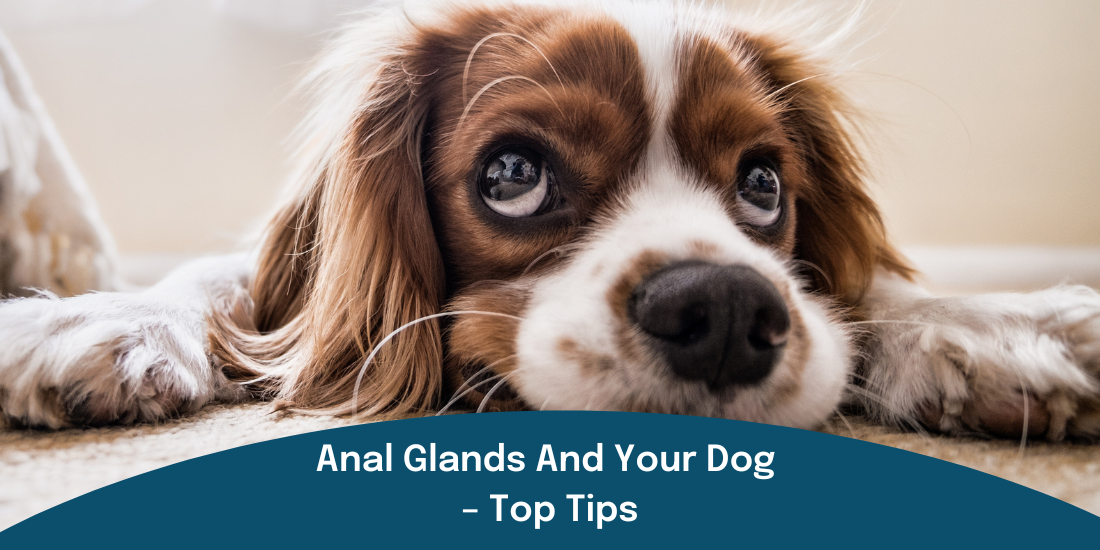
Anal Glands And Your Dog – Top Tips
|
|
Time to read 3 min
|
|
Time to read 3 min
Not the most pleasant of things to discuss and most certainly a very stinky problem when issues arise… anal glands are a very important part of your dog’s health. They can be quite problematic but, in most cases, issues are easy to treat.
However, if your dog's anal glands become blocked, over-filled or irritated it can lead to more serious problems such as infection and abscesses.
So, where can you find your dog's anal glands? Every dog has two of these near the anal opening – if you think of their bum like a little clock face, you’ll locate these glands at 4 and 8 o’clock.
The purpose of the anal glands is to mark territory. When your dog poos, the glands secrete a strong-smelling liquid to announce who they are.
They are also the reason your dog spends time sniffing other dogs’ bums! If your dog’s glands aren’t working properly, they can overfill and block.
If it is soft in consistency, there might not be enough pressure on the anal glands as the stool passes through. The glands rely on firm, bulky poop to push past and empty their foul-smelling liquid.
If so, it is possible that they have weak muscles around their bum coupled with fatty tissue gathering around the glands. If this happens, it makes emptying the glands a little difficult.
Small dogs can also struggle to express their anal gland as, due to their size, the glands are small and could block more easily.
This could lead to trauma of the anal gland as they are quite close to the skin surface. In turn, this can cause infection and skin inflammation. Allergies can also manifest red and inflamed skin all over your dog’s body including the anal gland.
There are many tell-tale signs that your dog is suffering with their anal glands:
• A stinky fishy smell
• Scooting – dragging their bums along the ground (and often leaving a stain)
• Pain when pooing
• Sitting or standing uncomfortably
• Excessive licking or biting their bums to try and relieve the itchiness of full glands
• Reluctance to have their bum touched
If you have spotted any of these signs, it is likely your dog has a problem. In addition, if you notice pus, red spots or a swollen area near the anus, it is possible your dog has also developed an infection.
It may be that your dog's glands need to be expressed and if they do it is important this is done properly by a professional who knows how to do this safely, such as your vet or your groomer. Whilst this isn’t a pleasant task, it is straightforward, and it is something you can do at home if you are shown how to do this safely by your vet or groomer.
Even if you don't want to do this yourself it's important to understand what's involved and the steps someone will go through are:
There are also preventative measures which you can do at home to try and minimise the risk of anal gland issues:
If you feel unsure about tackling anal glands yourself, it is quick and easy for a vet or groomer to do. Don’t hang about though, if left untreated, blocked anal glands can lead to more serious problems like infections and abscesses.
If you spot the signs of infection as we have discussed, contact your vet immediately.
We know this is not the most fun part of being a paw-parent but this is essential advice to ensure you have a happy, healthy pup. Make sure you regularly check the area to look for any abnormalities and act as necessary.